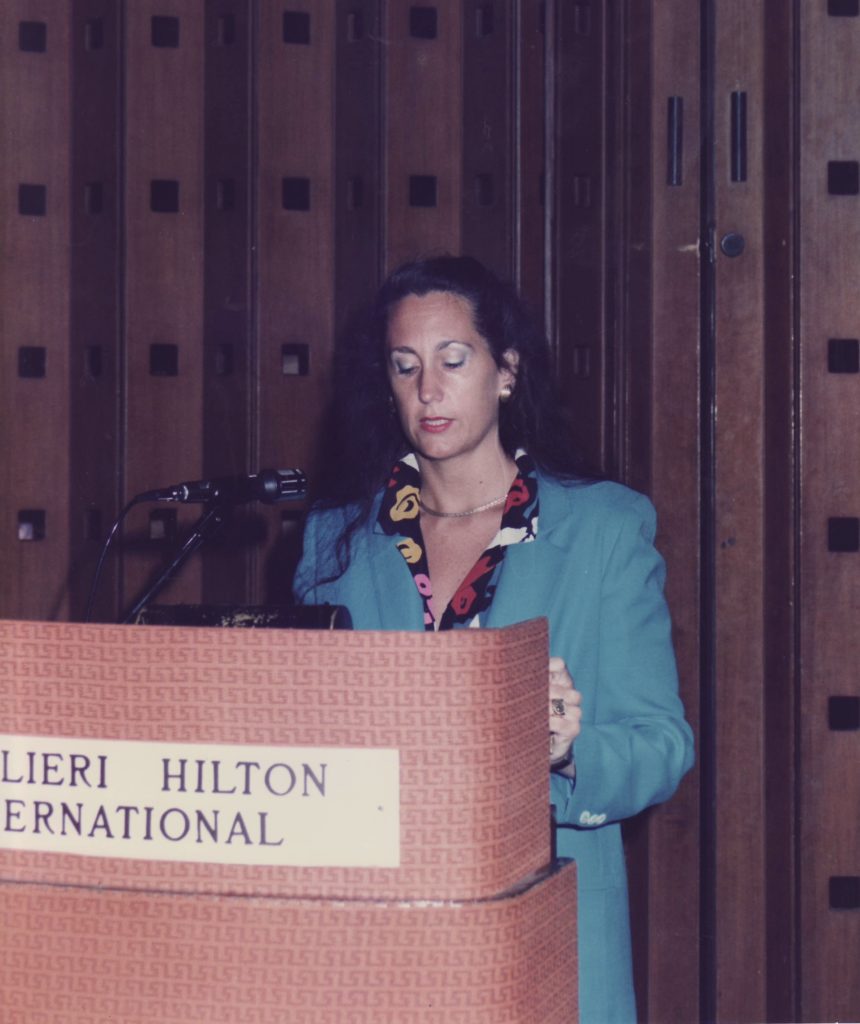
In a family, from among a lineage of formidable, dedicated, and productive women, the current President of the Parapsychology Foundation has certainly made her mark on the field.
In February of 1969, Lisette Coly, not yet 20 years old, walked into the Parapsychology Foundation offices then at 29 West 57th Street in New York City, to take up her very first position at the Foundation. Although she started her tenure as a Girl Friday in her family business with eyes on some other career, over time she discovered that she wanted to stay. Recently Lisette’s daughter, Anastasia Damalas, who has worked for the PF for some years now, asked her mother why she stayed:
“What made me stay was the phenomena itself, and the complexity and varied facets of the field of parapsychology. Within the PF I realized I could do a bit of everything. I could work the library, edit the Foundation’s publications, and help to administer scholarships. I could marry my interest in business with the day-to-day running of a foundation.”
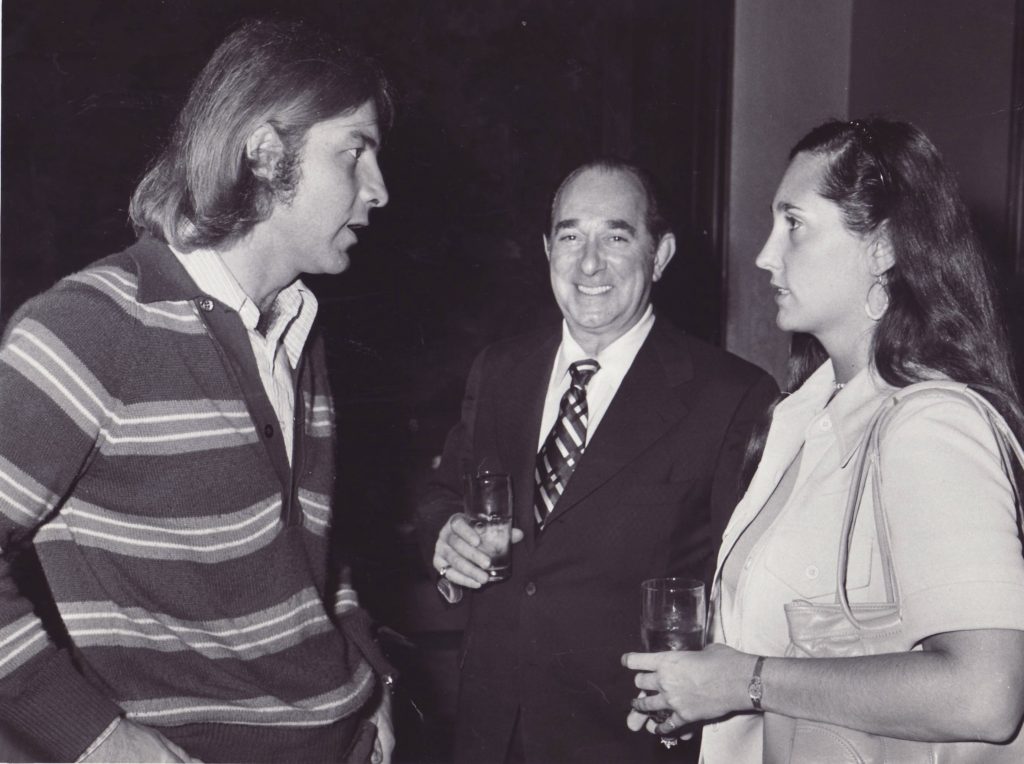
“The PF also allowed me opportunities to travel extensively when we were doing annual conferences which I helped to put together, often scouting out the locations. We visited various laboratories where PF was supporting research. Most fascinating, I recall, was the Stanford Research Institute (SRI) visit to see physicists Dr. Russell Targ and Dr. Harold Puthoff who had designed the early remote viewing experiments. I remember being impressed with the official security ID cards we utilized at the facility, which made all the more sense when we later learned that the government was secretly supporting the SRI research as well.”
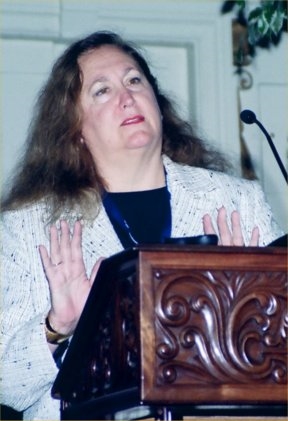
In the first few decades of her tenure at the PF, Lisette was surely involved in some of the most important conferences of our field, in fact 24 conferences in total. The conferences ranged from Psi Factors in Creativity, held in St. Paul de Vence in France in 1969 through Utrecht II: Charting the Future of Parapsychology, held in Utrecht, the Netherlands in 2008. As the years went on, her influence on planning the topics and speakers, and choosing the venues increased. As she took the reigns of the moderation of the conference days, she set the tone for the interactions with gracious venues, time for speakers to meet with each other informally, break bread together and interact with the audience, and take a much earned rest at the reception on the last evening.
On all of those conferences that produced proceedings, Lisette was an editor. Her contributions to Parapsychology Now ran the gamut, and it was her impetus that started the short-lived second series of the International Journal of Parapsychology, brought to a close by the Great Recession in 2008/2009, when the financial belt had to be tightened.
But the Foundation was more than conferences and publications. There has always been a commitment to those who seek a scientific understanding of psychic phenomena and experience. As Lisette said:
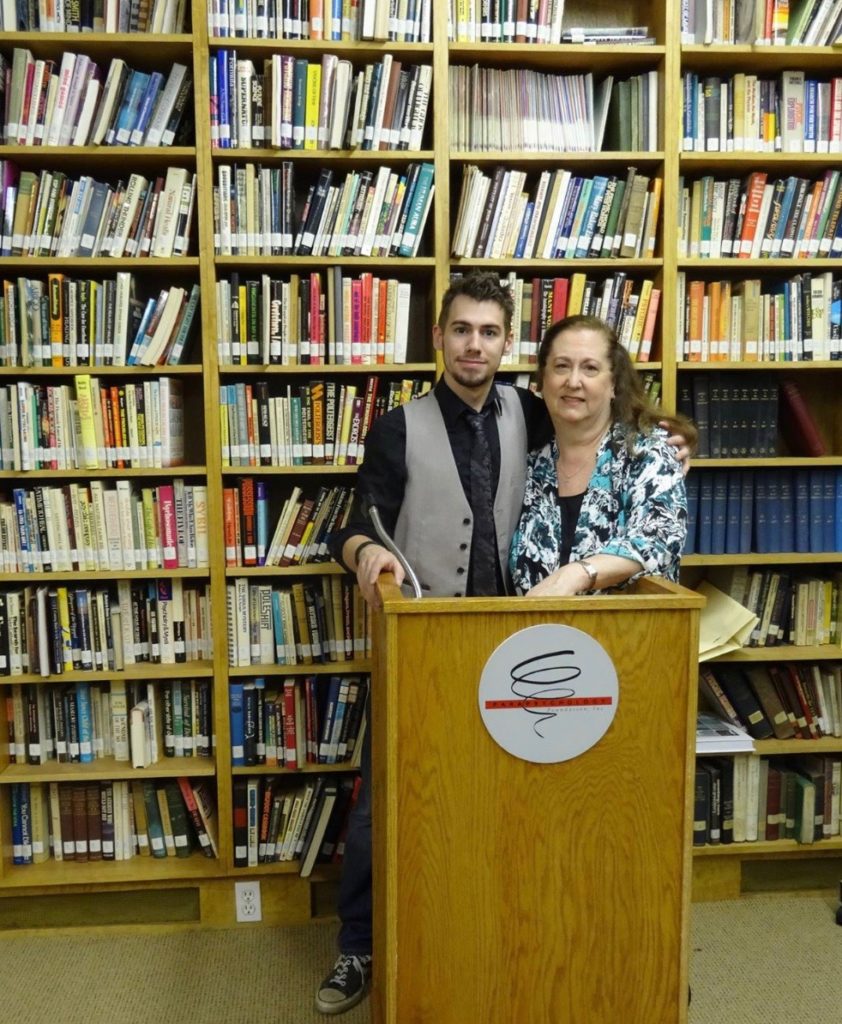
“The phenomena itself also started to intrigue me, and I became invested in the idea of helping people, which I think is what Garrett wanted to do to with the Foundation to begin with. I have spent the 50 years trying to serve individuals from different walks of life and backgrounds who worked to come to grips with a better understanding of the phenomena that puzzles, perplexes, and intrigues all of us.”
So what was a day in the office like, in the last years of Mrs. Garrett’s life, under the supervision of her able parents, Eileen and Robert Coly, and as she took the reigns more and more from the late 1990s to Mrs. Coly’s retirement and then death in the 2010s?
Lisette told her daughter:
“Each day at the foundation was an adventure because I never knew who would come in the door and for what. One day we might have been involved in an experiment, like the time we assisted Dr. Stephen Braude and Dr. Steven Baumann test a sensitive by rigging one of the rooms up with strain gauges as the sensitive attempted to elicit movement within the enclosed room. Of course, I had to go upstairs and reprimand my children who lived above the store to stop jumping around, and sent them out of the house for the day so as not to interfere with the gauges.”
“I recall on the dark day of 9/11, answering the phone a couple of hours after the buildings had fallen and being asked if a soul would survive a plane crash. I realized the gravity and responsibility I had in helping and wanted to both comfort the caller and provide them with concrete information. My knee jerk response was to reach out and say the soul does go on, which is what I believe, but I stopped myself and thought first “do no harm” because whatever I might say could put this grieving individual on a path to be taken advantage of by bogus psychics. During that, and many other phone calls that I answered at the foundation, people shared with me experiences that they believed to be atypical, and I would always counsel them to eliminate all normal potential explanations for what they perceived to be the paranormal.”
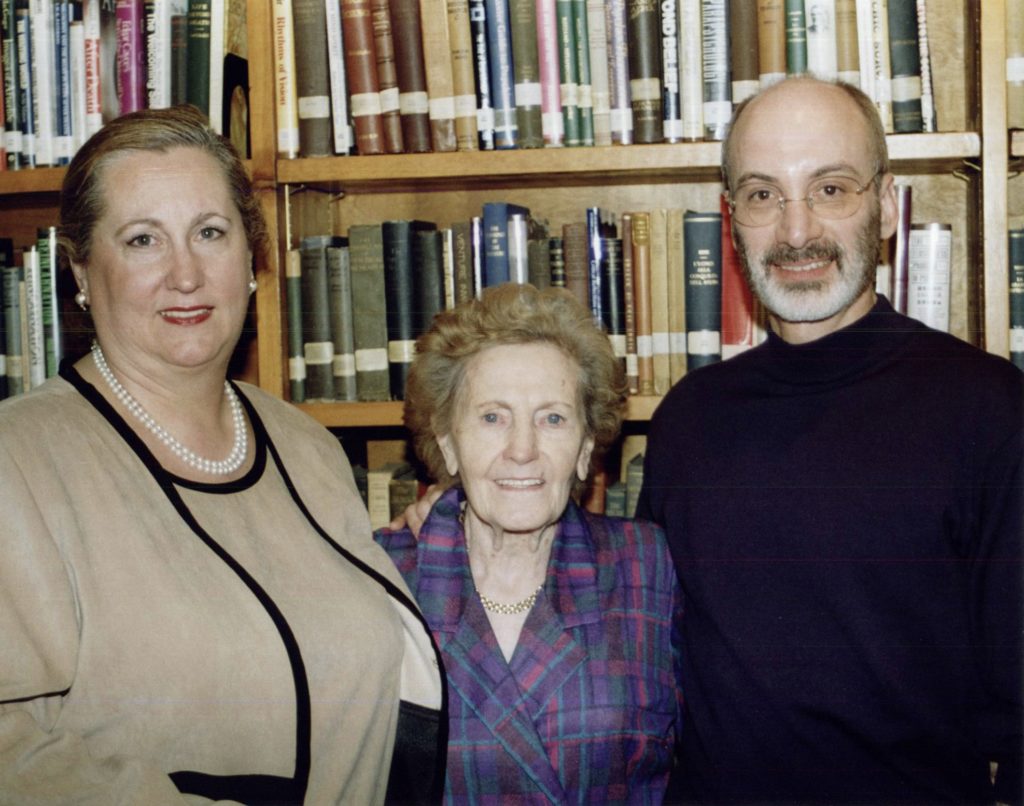
“But most of my days involved helping the patrons of the library, some already far along in their careers within the field, others who were just starting out in their research and even those who couldn’t define parapsychology but who had experienced some of the phenomena and came looking for answers.”
On her accomplishments, Lisette said:
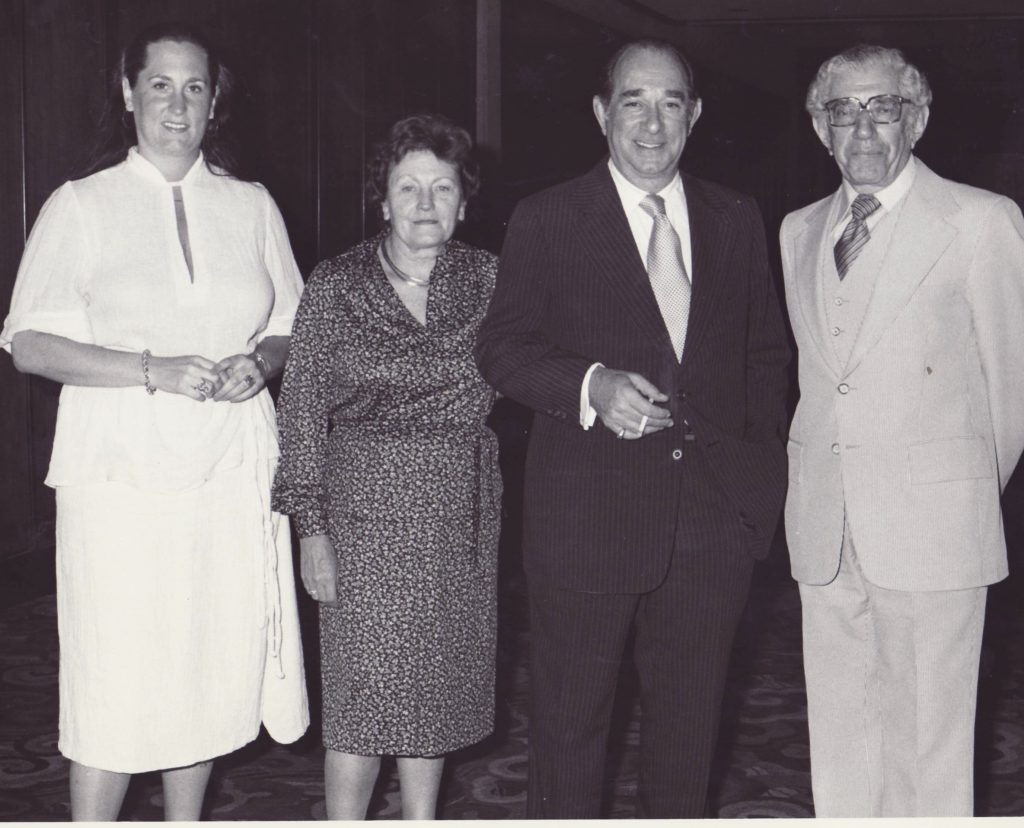
“Looking back over 50 years I’m astounded at the enormity of the number of people I crossed paths with, whether in person or through writings. What’s really gratifying now is to look at the students we gave grants to or that I was instrumental in talking to early on in their careers, who have gone on to make large impacts in the field. Like a pebble thrown into a pond, I can now appreciate the ripples that have spread. I am proud of the little part that I played in trying to propel a greater understanding of parapsychology.”
And her greatest accomplishments?
Lisette noted that:
“Making connections and helping people navigate the field of parapsychology, telling them where to find information whether it be through our library and publications or passing them on to where they can go for more information or even helping them make productive connections—that’s what I’m proudest of.”
“I’m also proud of my work in trying to formalize PF international affiliates and the work I did for the conferences over the years—but for me it’s always about the immediacy of the people and students that we touch and the idea of being able to put people in the right direction for more information. Such as the time when I met with Dr. Patrick Geisler and he was contemplating leaving the field and I recommended he looked into JFK University and he went on to have an impressive career in Anthropology and Parapsychology.”
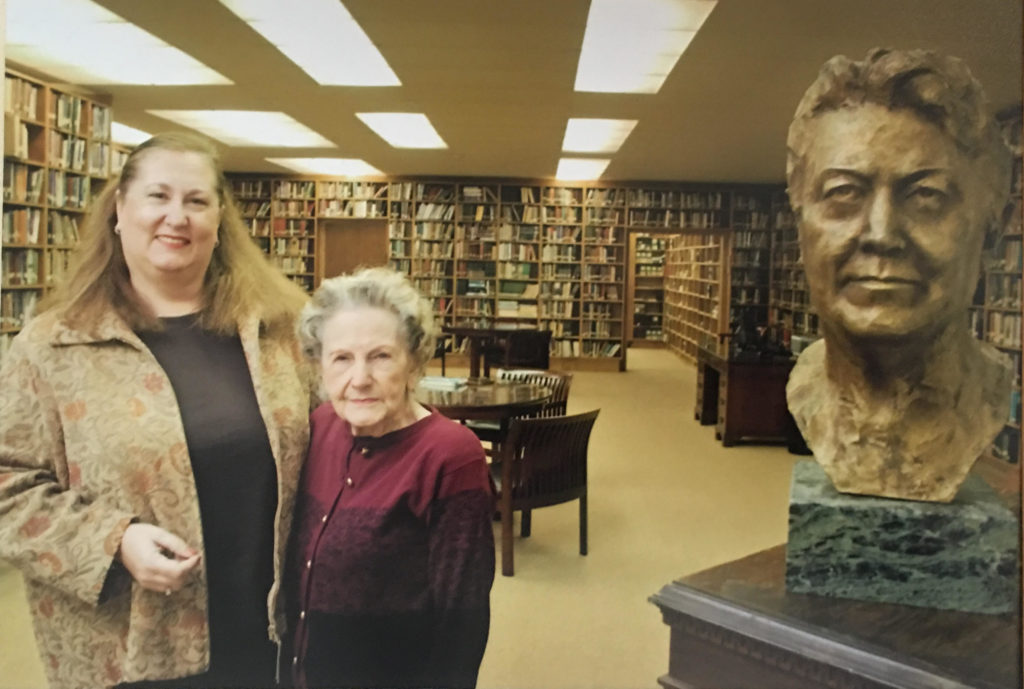
Standing shoulder to shoulder with her grandmother and mother, in what was never meant to be a family foundation, during years when the PF nest egg was strained to bursting, Lisette has kept PF’s standards and hopes high. From all of us at the PF, we just want to say a heartfelt congratulations to the most fearless and ever creative leader the PF has ever had.
More years to come, we’re hoping!
For more information on Lisette’s career click here.
Congratulations, Lisette! And kudos for all the great work you’ve done. So great to see those old photos especially of your dad! Love, Rosemarie
Congratulations Lisette on your 50th anniversary at the Parapsychology Foundation. You and your family have done so much to help promote and hold together the field of parapsychology. And great to see the photos taken over the decades!